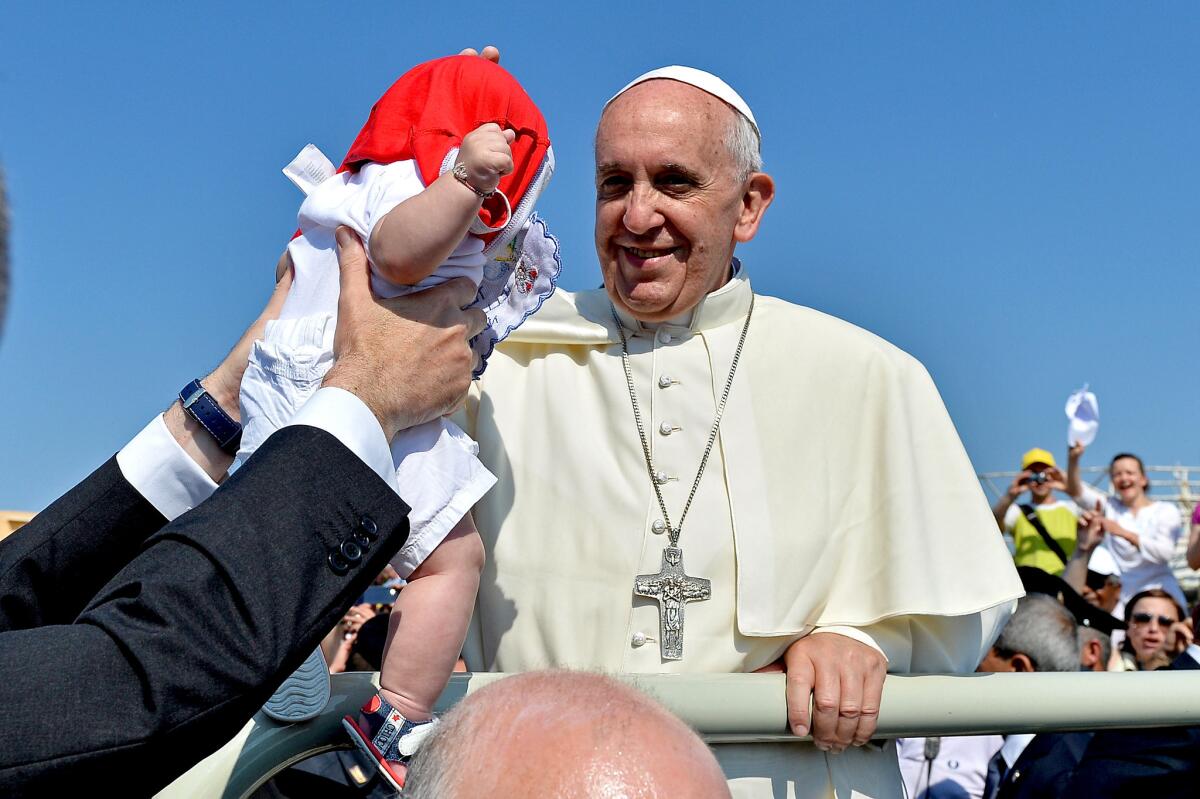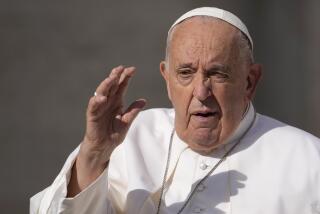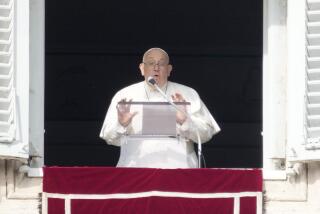Opinion: Did Pope Francis acquiesce to conservatives on married priests? Sure looks like it

Conservative Catholics, including some critics of Pope Francis, are doing a victory lap because the pope has not, as expected, endorsed the ordination of married men as priests in the Amazon region of South America. At a Vatican synod it in October, two-thirds of bishops from that area had supported an exception to Western Catholicism’s celibacy requirement to deal with a severe shortage of priests.
The pope had been expected to endorse that idea. But he declined to do so after a firestorm that included the publication of a pro-celibacy book, “From the Depths of our Hearts,” that originally listed Pope Emeritus Benedict XVI as a coauthor. (The principal author of the book is Cardinal Robert Sarah, a prominent church conservative, but Benedict did contribute some reflections.)
In an “apostolic exhortation” about the Amazon made public Wednesday, Francis didn’t announce a change in the celibacy rule for that region. Instead he suggested other ways to deal with the priest shortage such as encouraging bishops in other countries to encourage missionaries to “opt for the Amazon region.”
The pope’s decision is rightly being described as a victory for conservatives who cherish the celibacy rule. But it may have broader and more ominous implications, not just for Catholics of the so-called Eastern-rite churches, in which married men may be ordained priests, but for the prospects of reunion between Rome and Eastern Orthodox churches.
As I explained here, there are already married Catholic priests. Most minister in the Eastern rites, which share traditions, liturgy and theology with ancient churches such as the Eastern Orthodox that don‘t recognize the pope. But there are also Catholic priests who were previously Anglican, Episcopal or Lutheran clergy who were allowed to be ordained Catholic priests even though they were married. (Ironically, it was Benedict XVI who in a 2009 decree paved the way for large-scale ordination of married former Anglican clergymen.)
The Vatican’s acceptance of married priests in Eastern-rite churches has been grudging at times. In the early 20th century, it prohibited those churches from ordaining married men in North America, South America and Australia, a concession to Roman Catholic bishops in those places who were worried that their faithful would be scandalized by the presence of married Catholic priests in their midst. That prohibition was lifted only in 2014.
Granted, Francis’ decision not to create a new exception to the celibacy rule preserves the status quo. But coming after the controversy over the retired Pope Benedict’s contribution to “From the Depths of our Hearts,” it might be seen as a retreat from the Roman Catholic Church’s position that its celibacy requirement is a matter of discipline, not doctrine.
That’s because excerpts from Benedict’s contribution to the book suggest that the retired pope sees an absolute incompatibility between priesthood and the married life. Benedict wrote: “From the daily celebration of the Eucharist, which implies a permanent state of service to God, was born spontaneously the impossibility of a marital bond.”
To say that it’s impossible for priests to be married seems to elevate the ban on celibacy to the status of doctrine, calling into question the legitimacy of the vocations of married clergy who already minister in the Catholic Church. On Thursday the Washington Post charmingly profiled one such priest, a cleric in the Ukrainian Greek Catholic Church. “Married priests are not above the folks,” the Rev. Oleh Kindiy told the Post. “My wife is friends with the parishioners. My kids are growing up with parishioners’ kids.”
Especially in light of Benedict’s intervention, Francis’ refusal to relax the celibacy rule for the Amazon also sends a discouraging signal to the Eastern churches not in communion with the pope — that reunion with Rome could render their married priests second-class clergy.
I’m sure the pope didn’t intend to demean the ministry of married priests — Catholic and non-Catholic — with this decision. But it could have that effect.
More to Read
A cure for the common opinion
Get thought-provoking perspectives with our weekly newsletter.
You may occasionally receive promotional content from the Los Angeles Times.











